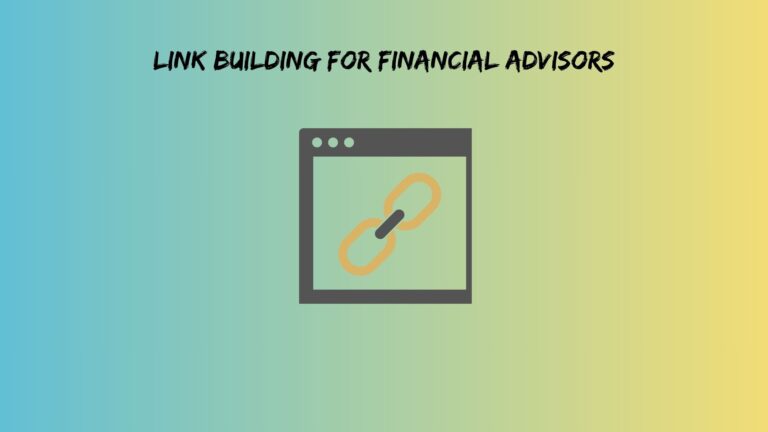Do Backlinks Still Matter? The Truth About SEO in 2026
The SEO world has been saying it for years:
“Backlinks are dead.”
But it’s 2026, and the truth is clearer than ever—backlinks still matter. A lot.
If you’re serious about search rankings, traffic growth, and brand visibility, understanding the importance of backlinks in the AI-first era of search is non-negotiable.
In this post, we’ll break down why backlinks still hold power, how Google treats them today, and how smart SEOs are using them differently to win rankings without playing risky games.
What Even Is a Backlink, and Why Does It Matter?
A backlink is a link from one website to another. When an authoritative site links to your page, it signals to Google:
- This content is trustworthy.
- It deserves attention.
- It’s relevant to this topic.
Search engines view backlinks as votes of confidence, and they use them to rank pages. The more quality backlinks you have, the more likely you are to rank higher in organic results.
What Google Really Says About Backlinks (in 2026)
You’ve probably heard rumors like:
“Google doesn’t count links anymore.”
“AI has replaced the need for backlinks.”
Let’s separate the myths from reality.
In 2024 and 2025, Google rolled out several updates to devalue low-quality, spammy links, but they never said links don’t matter.
Here’s what’s actually changed:
- Google now discounts links from low-trust, irrelevant domains.
- The algorithm focuses more on contextual relevance and editorial integrity.
- AI-generated content farms with links are being detected and penalized.
But quality links—from reputable, niche-relevant sources—still carry massive SEO weight.
Why Backlinks Still Matter in 2026
Let’s break it down:
1. They Drive Authority
Authority is still one of the core components of Google’s ranking algorithm. Backlinks from authoritative domains signal that your site is a trusted source.
In the AI era, this matters even more, especially when AI engines like ChatGPT or Perplexity pull content from high-authority sources to generate answers.
2. They Fuel Topical Trust
If multiple sites in your niche are linking to your pages, Google sees your site as a topic expert. This helps you win not only rankings but also citations in Google’s AI Overviews and other chatbot-style search tools.
3. They Still Move Rankings
Whether you’re targeting product pages, landing pages, or long-form content, backlinks still play a crucial role in pushing keywords from page 2 to page 1.
We’ve seen it firsthand. Just a handful of context-rich, niche-specific backlinks can make the difference between 3,000 monthly clicks and 30,000.
What’s Changed: The Quality Expectation
In 2026, it’s not about how many backlinks you have. It’s about how contextually valuable they are.
Here’s what Google rewards today:
- Links from real, traffic-generating sites
- Links placed naturally within content
- Links from topic-aligned publications
- Links from unique referring domains
And here’s what it punishes:
- PBNs, blog networks, and spammy link farms
- Paid links with no relevance
- Sitewide footer/sidebar links
- Low-quality guest posts published on overused domains
Backlinking isn’t dead. Lazy backlinking is.
Here’s the real cost of buying backlinks
What About AI-Generated Search Overviews?
This is where the game gets more nuanced.
AI Overviews (like Google’s SGE or ChatGPT results) don’t just look at keyword density or backlinks—they look at content authority, source reputation, and consistency across the web.
Backlinks directly influence this. Why?
Because AI models are trained to prioritize trustworthy sources, and those sources often earn their trust through quality backlinks.
So, even in a world where AI summarizes answers, backlinks still control what gets cited.
Real-World Example: Backlinks in Action
We worked with a B2B SaaS brand in Q1 2026.
- They had solid content.
- Technical SEO was clean.
- Rankings were stuck on page 2.
We built 20 backlinks over 60 days:
- DR50–70+
- Contextual placements
- Niche blogs and editorial content
Result?
Their main service page jumped from #15 to #3.
Monthly clicks increased by 172%.
They also started showing up in AI answer boxes on ChatGPT and Gemini.
So… Should You Still Invest in Backlinks?
Yes—but strategically.
Here’s how to build backlinks that matter in 2026:
Focus on niche relevance
A DR60 link from a finance blog won’t help your SaaS brand. Match industry, topic, and audience.
Prioritize authority and traffic
Use SEO tools like Ahrefs, SEMrush to audit link quality before you buy.
Get editorial-style placements
Contextual links in useful content work better than link inserts or bios.
Go for fewer, better links
A handful of top-tier links will do more than dozens of low-quality mentions.
Want to Skip the Outreach and Spam Filter Headaches?
That’s what we do best.
At LinkPricePro, we help you earn context-rich backlinks from real sites—no PBNs, no shady lists.
Each backlink we place is:
- Vetted by humans
- Aligned with your niche
- Indexed and trackable
Ready to build backlinks that actually impact your rankings?
Explore our Link Building Services now.
Final Thoughts: Backlinks in the AI Era
In 2026, backlinks are no longer the “quick win” they used to be. But they’re far from dead.
The importance of backlinks is evolving. They now play a dual role:
- Fueling Google’s traditional ranking system
- Powering AI engines’ trust frameworks
SEO without backlinks is like a website without hosting—it doesn’t matter how pretty your content is if no one trusts it.
Build links that matter. Ignore the noise.
FAQs
Are backlinks still a ranking factor in 2026?
Yes. Backlinks remain one of Google’s top ranking signals. However, quality and contextual relevance are now more important than ever.
Can I rank without backlinks today?
In low-competition niches, yes. But for any competitive term or market, backlinks are still essential for authority, trust, and visibility, especially in AI overviews.
What type of backlinks are most effective in 2026?
Editorial, niche-relevant, dofollow links placed within high-quality content on trusted websites. These links drive authority and boost topical relevance.




